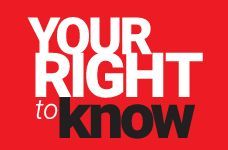Stakeholders say records on status of matured trees in city essential for proper management
THE crucial task of assessing if mature trees are safe in Kuala Lumpur after recent storms has been made harder by irresponsible citizens.
Tags on dozens of trees, which indicate if they had been inspected, assessed or logged for inventory purposes, have either been ripped off or covered up by banners and illegal signs.
These trees were assessed by Kuala Lumpur City Hall (DBKL) arborists for proper care and maintenance – including pruning, treatment or removal if necessary.
Neighbourhoods which seemed to be more affected are in Jalan Kelang Lama and include Taman Desa, Jalan Kuchai Lama along with Taman Gembira in Kuala Lumpur.
Taman Desa Residents Association (TDRA) chairman Wong Chan Choy pulling up a banner that was covering a tree that was recently tagged by DBKL in Taman Desa. On his right is TDRA treasurer, Koh Swee Hyong .
Taman Desa Residents Association (TDRA) chairman Wong Chan Choy and members of his committee were the first to notice some trees had labels while others did not.
At the time, they were carrying out their own inspection to check for tree branches that might be at risk of falling or in need of pruning.
“When we looked closer, we found some of the tags under banners,” Wong said.
ALSO READ: Residents want their say before trees get felled
He said the labels were important indicators of the trees’ health, and to identify hazard trees which could be diseased, decayed or were structurally unstable.
“It is also important to maintain an accurate record of the city’s tree population, including species, age and condition.”
A yellow tag indicates this tree has been checked by an arborist.
He said in light of recent incidents of trees falling due to thunderstorms, it was necessary in the name of public safety to identify and mitigate hazards posed by old and damaged trees.
“The tree labels or tags are important because without them, it will be difficult for DBKL to track and monitor the health and condition of the trees.
“This can lead to untreated diseases, unnoticed structural weaknesses and other issues that could compromise the trees’ health and safety,” he said.
He added that DBKL could also face difficulties in maintaining accurate records and conducting necessary inspections, which would lead to increased costs.
Notice on a tree that has been identified for felling in Taman Desa.
Bangsar resident M. Viknendran said, “A city that prides itself on its tree assets should not allow people to stick banners and advertisements on the trees.
“This practice not only harms the trees but also diminishes the aesthetic and environmental value they provide,” he said.
“DBKL should start enforcing regulations against any banners placed on trees.
“And this should even include government agencies that are promoting functions.
“This will help protect the trees and maintain the city’s aesthetic appeal, ensuring public places are kept clean and free from illegal advertisements.”
Koh says DBKL contractors tend to prune branches but leave tops of trees untouched.
TDRA treasurer Koh Swee Hyong said there were many trees in the township in need of pruning, yet contractors hired to do the job tend to only cut branches and leave the tops untouched.
Koh said proper pruning practices involved maintaining the natural shape and balance of the tree.
“Pruning only the lower branches and leaving the top untouched can create an imbalance in the tree’s structure.
“This can lead to a top-heavy tree, increasing the risk of the tree becoming unstable and potentially falling.
“We also need to point out that areas with old trees should be free of traders operating stalls, as it is not safe for the public who patronise the stalls or for the operators,” added Koh.
A StarMetro check on the complaint found many tags under banners, while others were removed or had fallen on the ground.
Some had either a black or yellow tag with serial numbers.
Taman Desa Residents Association members showing trees that require pruning.
When contacted, a DBKL spokesperson said trees tagged with a yellow label had been assessed by an arborist, while black-labelled ones had been inventoried.
“Tagging the trees is important as it ensures proper management,” said the spokesperson, adding that a team would be sent to check on the illegal banners.
According to the Federal Territories Department, there are 236,651 trees in Kuala Lumpur.
Of this number, 1,346 trees are more than 30 years old.
On May 7 and May 13, thunderstorms caused dozens of trees to fall in the city, causing damage. One person was killed, while two others were injured in the May 7 incident.
Following this, DBKL said City Hall-appointed certified arborists had identified 28 trees in the city as high-risk in its latest periodic inspection.
DBKL said these trees would be felled soon, following scheduled checks on trees 30 years or older, or those with a circumference exceeding 1.5m, around Kuala Lumpur from 2019.
It said 175 trees had been identified as high-risk, with most exceeding 50 years old.
Of this number, 147 trees have been felled.
 BeritaKini.biz Berita Viral Terkini di Malaysia
BeritaKini.biz Berita Viral Terkini di Malaysia





